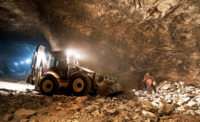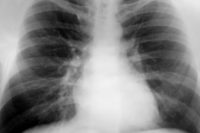Historically, October is the deadliest month of the year in the metal and nonmetal mining industry. Since 2000, 51 fatalities occurred during the month, many of which involved powered haulage and machinery accidents at a time when mines prepare for seasonal changes. In the fall of 2013, an uptick of metal and nonmetal mining deaths began after years of historic low levels of fatalities.
With the onset of cooler weather, many intermittent metal and nonmetal mining operations are preparing for winter by performing annual shutdown activities and disassembling portable plants. Full-time operations are relocating equipment into storage and conducting annual repairs. During seasonal transition, miners may engage in new or unfamiliar tasks, working with equipment they service only once a year, or assisting maintenance personnel on jobs they rarely perform.
To combat this annual trend, the U.S. Department of Labor's Mine Safety and Health Administrationhas lhaunched a safety initiative that includes enhanced enforcement, education and outreach, such as informational "walk and talks" by federal inspectors at mine sites.
"MSHA's heightened vigilance during this period will focus additional resources on preventing accidents at both intermittent and full-time mining operations, and we will look hard for the conditions that have led to mining deaths," said Joseph A. Main, assistant secretary of labor for mine safety and health. We strongly encourage the mining industry to join us in these efforts."
Enforcement staff from both Coal and Metal and Nonmetal, along with Educational Field and Small Mine Services personnel, will disseminate information on mining deaths and best practices to prevent them, particularly since the fall of 2013 when the number of metal and metal mining fatalities increased.
"This is the time to be proactive," urged Main. "Conduct workplace examinations to identify and fix hazards. Properly train miners so that they can recognize and avoid dangerous conditions and return home at the end of their shift."
See MSHA's Seasonal Safety Alert here.


